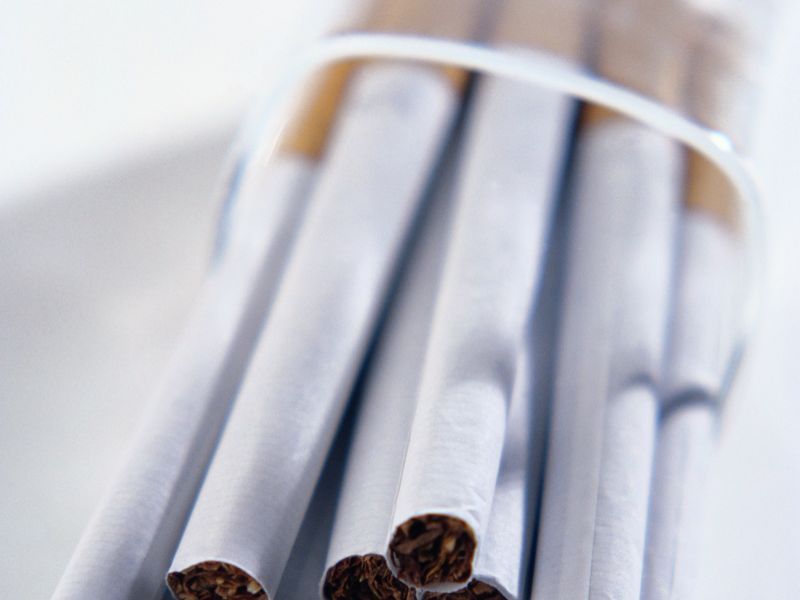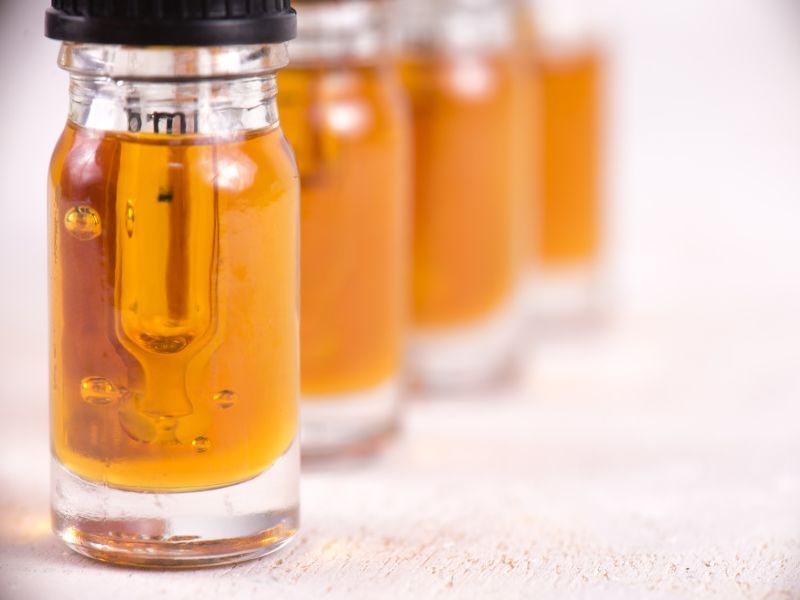Wildfire Smoke Can Trigger Eczema, Study Finds
THURSDAY, April 22, 2021 (HealthDay News) -- When wildfires choked the air and turned the skies orange throughout the American West in recent years, they caused a variety of health problems from coughs and runny noses to life-threatening heart attacks and strokes.
But eczema and other skin issues were a result of the wildfires, too, according to researchers from the University of California, San Francisco (UCSF), and the University of California, Berkeley.
"Existing research on air pollution and health outcomes has focused primarily on cardiac and respiratory health outcomes, and understandably so. But there is a gap in the research connecting air pollution and skin health," study co-author Raj Fadadu said in a UCSF news release.
"Skin is the largest organ of the human body, and it's in constant interaction with the external environment. So, it makes sense that changes in the external environment, such as increases or decreases in air pollution, could affect our skin health," added Fadadu, a student in the UC Berkeley-UCSF Joint Medical Program.
Eczema, also known as atopic dermatitis, and general itch were among the skin symptoms that health clinics in San Francisco saw more of during the two weeks that the "Camp Fire" wreaked havoc in November 2018. Researchers compared those dates to the same time of year in 2015 and 2016.
The findings suggest even short-term exposure to hazardous air quality from wildfire smoke can harm skin health, the study authors said.
For the study, the research team examined data from more than 8,000 visits to dermatology clinics between October and February for the years 2015, 2016 and 2018.
During the Camp Fire, clinic visits for atopic dermatitis and general itch increased significantly for both adults and children. The study also found increased rates of prescribed medications, such as steroids, during times of high air pollution.
Study senior author Dr. Maria Wei, a dermatologist at UCSF, said that "89% of the patients that had itch during the time of the Camp Fire did not have a known diagnosis of atopic dermatitis, suggesting that folks with normal skin also experienced irritation and/or absorption of toxins within a very short period of time."
Air pollution from wildfires includes fine particulate matter, polycyclic aromatic hydrocarbons and gases. These pollutants can slip through skin barriers, penetrate cells and cause inflammation, trigger oxidative stress and other negative effects, the researchers said.
"Skin is a very excellent physical barrier that separates us and protects us from the environment," Wei said.
"However, there are certain skin disorders, such as atopic dermatitis, in which the barrier is not fully functional. It's not normal even when you don't have a rash. So, it would make sense that when exposed to significant air pollution, people with this condition might see an effect on the skin."
You can protect your skin during wildfire season by staying indoors, wearing clothing that covers the skin if you go outside and using emollients, such as petroleum jelly, to strengthen the skin's barrier, the researchers suggested.
The findings were published online April 21 in JAMA Dermatology.
More information
The American Lung Association has more on how wildfires affect your health.
SOURCE: University of California, San Francisco, news release, April 21, 2021
This article: Copyright © 2021 HealthDay. All rights reserved.



All Rights Reserved | The Oasis Group







